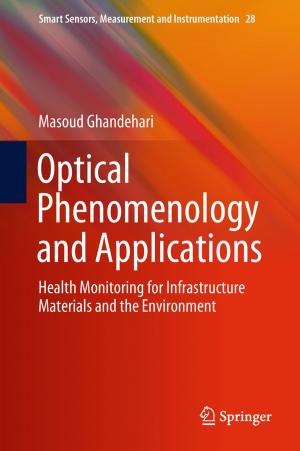The Golgi Apparatus and Centriole
Functions, Interactions and Role in Disease
Nonfiction, Science & Nature, Science, Biological Sciences, Cytology| Author: | ISBN: | 9783030231736 | |
| Publisher: | Springer International Publishing | Publication: | August 21, 2019 |
| Imprint: | Springer | Language: | English |
| Author: | |
| ISBN: | 9783030231736 |
| Publisher: | Springer International Publishing |
| Publication: | August 21, 2019 |
| Imprint: | Springer |
| Language: | English |
This volume takes a closer look how the cell organelles Golgi apparatus (also known as the Golgi complex or Golgi body), and centriole are structurally and functionally intertwined.
Initially, it was believed that the role of Golgi complex is limited to the packaging and preparation for secretion of various cellular proteins, while the centriole participates in cell division and cilia formation. However, since their discovery nearly 200 years ago, it became clear that these two organelles are interacting, and that their functions are much more complex and far reaching than previously thought. Recent findings indicate that the Golgi–Centriole relationship may be important for directional protein transport, cell polarization and cell cycle progression. Current studies indicate that Golgi and centriole also participate in development and act as cellular and immunological sensors, and that their abnormalities lead to cell and developmental abnormalities, Alzheimer, cancer, various lipid disorders and neurological and immunological diseases in humans.
This volume combines the latest information on the structure, molecular composition, and roles of Golgi and centriole in various cellular functions and diseases. The better understanding of the Golgi–centriole interactions may lead to the development of novel therapies for the treatment of various diseases, including cancer.
This volume takes a closer look how the cell organelles Golgi apparatus (also known as the Golgi complex or Golgi body), and centriole are structurally and functionally intertwined.
Initially, it was believed that the role of Golgi complex is limited to the packaging and preparation for secretion of various cellular proteins, while the centriole participates in cell division and cilia formation. However, since their discovery nearly 200 years ago, it became clear that these two organelles are interacting, and that their functions are much more complex and far reaching than previously thought. Recent findings indicate that the Golgi–Centriole relationship may be important for directional protein transport, cell polarization and cell cycle progression. Current studies indicate that Golgi and centriole also participate in development and act as cellular and immunological sensors, and that their abnormalities lead to cell and developmental abnormalities, Alzheimer, cancer, various lipid disorders and neurological and immunological diseases in humans.
This volume combines the latest information on the structure, molecular composition, and roles of Golgi and centriole in various cellular functions and diseases. The better understanding of the Golgi–centriole interactions may lead to the development of novel therapies for the treatment of various diseases, including cancer.















